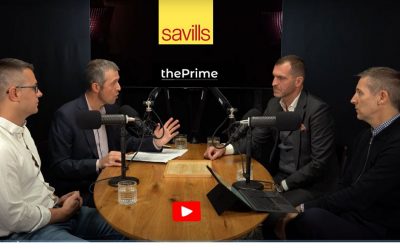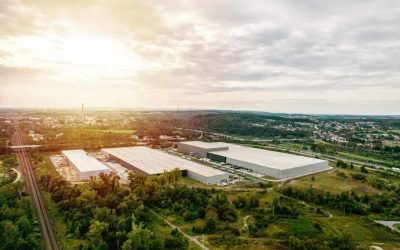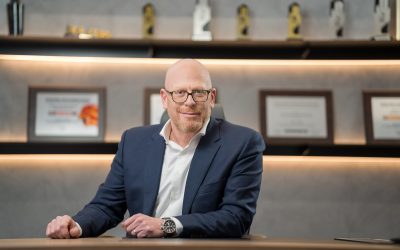Martin Piškanin is chairman of supervisory board of HOPI Holding, a successful Czech logistics provider founded at the beginning of the century. ThePrime spoke with him at an event marking the beginning of construction for its newest warehouse in Panattoni Park Chomutov North.
This warehouse isn’t one of them, but HOPI has a lot of low-temperature facilities. How are you solving the ESG question?
Most of our customers are important international corporations like Nestle, Mondelez, P&G, and they’ve all made ESG one of their priorities. So, over the last five years we’ve changed the equipment in our frozen goods warehouses for new technology that’s uses dramatically less energy and has far less of an impact on the environment. It means we’ve reduced consumption in our more technologically challenging operations by 50% over the last five years. And we continue to invest in this field by building solar plants that we install on the roofs of our warehouses in which 100% of the energy we produce we use in the same place with the goal of being energy neutral.
When you say “your warehouses” do you mean ones you own, or the ones where you’re tenants?
We own 100% of the ones that are technologically demanding, whereas in more standard warehouses like this one, we own half of them and rent the other half.
Will you continue holding on to the ones you own? Or are you tempted to do sale and lease backs?
Just the opposite. Our focus is that wherever possible, we’d like to be in our own buildings. When we first began in logistics around 2000, there weren’t any developers who could provide modern buildings. So, we were forced to build our own.
But the return on investment with these buildings produce is relatively long, whereas our contracts with customers for logistics services are usually just three or five years. So, when it was possible to take space in development projects, then we did so in order to reduce our risks. Because, if we lost the customer, we could return the space. At that time, we didn’t have the financial strength to cover the expenses of the building if we lost the partner.
The situation is different today. Many of the developers in the buildings we rent have already paid off the building with the rent we paid them. And yet, they still react to the market changes. When the market rents go up, they raise them for us as well, even though they’ve paid off the building. That’s a kind of threat to our business because logically, we have to pass those expenses on to our clients.
That’s the reason why we’re making our own investments where it’s possible with new projects is so that we can protect ourselves and our customers from unexpected prices rises. We want to have it under our own control. So, our long-term strategy is to own the majority of our real estate portfolio.
Also in ThePrime
HOPI’s German expansion begins from Panattoni Park Chomutov North







